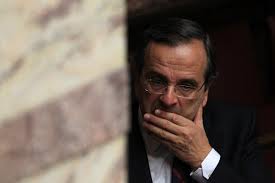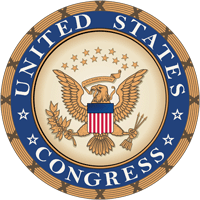Failure of parliament to pick a president would trigger national elections that could put country on collision course with creditors, writes Helena Smith, The Guardian
With markets tumbling, Europe watching and Greeks more polarised than ever, the Athens parliament begins the process of voting for a president on Wednesday. The attempt to elect a figurehead imbued with ceremonial power but almost no executive influence kicks off a fortnight that by dint of a constitutional technicality has the capacity to change not only Greece but the eurozone too.
“Exceptionally in Greece, the failure of the parliament to elect a president triggers national elections,” said Prof Kevin Featherstone, who heads the Hellenic Observatory at the London School of Economics. “And at this time that could be hugely consequential, risking a Greek exit from the eurozone and wider instability in the union and financial markets.”
When the first round of voting begins at 7pm, uppermost in the minds of Greece’s 300 MPs will be not the merits of the government’s presidential nominee, Stavros Dimas, a former EU environment commissioner, but whether the country should go to the polls.
Many MPs clearly think it should. And leading the polls is the leftist Syriza party, whose ratings have soared on the back of fury over the ruling coalition’s austerity programme – the price of the insolvent Greek economy being kept afloat by the EU, ECB and IMF.
If general elections are called and the radicals emerge as the winner, Athens will be on a collision course with the creditors who have propped it up to the tune of €240bn (£190bn). The political stability that the prime minister, Antonis Samaras, yearned for when he brought forward an election originally due in February will have been lost.
“After five years of enormous sacrifice and real progress on the macro-economic front, politics have ensured that we are back to where it all began, in deep crisis mode,” said Dimitris Kerides, professor of political science at Athens’ Panteion University. “And all because of a provision in the constitution that no one paid attention to in the past.”
Kerides said the timing couldn’t be worse because Greece has yet to conclude its final evaluation with creditors, imperative to unlocking €7bn in aid. Failure to wrap up the review has resurrected fears of default and a hugely destabilising bank run. In an unusual intervention on Monday, the governor of the Bank of Greece, Yannis Stournaras, said the political situation had assumed “serious dimensions”, with market liquidity drying up fast.
Samaras’s fragile two-party alliance is campaigning hard to muster the votes needed to endorse the septuagenarian Dimas. With 155 seats, it is not expected to achieve the target of 200 in the first two rounds of voting, and needs the support of 25 other MPs to amass the necessary 180 in the third round, on 29 December.
Fierce horse-trading is expected to continue over Christmas as the coalition attempts to persuade wavering MPs. “Deals might be made behind the scenes as many know they are facing the end of their political careers,” said Featherstone. “Unless they vote [for Dimas] they stand to lose salaries and all the perks that come with the job. They also know that the vast majority of Greeks do not want the country to go through early elections.”
But deputies are incensed by what is increasingly being seen as outside interference in Greek affairs. On Monday, the EU’s economic affairs commissioner, Pierre Moscovici, signalled that he fully supported the Samaras government in its endeavour to elect a new president. Arriving in Athens for a two-day visit aimed at shoring up the coalition, the Frenchman said it would be a pity if Greece was forced to leave the eurozone.
“All this scaremongering and talk of catastrophe, chaos, could have the opposite effect with MPs feeling as if they are being blackmailed to cast votes in favour,” said Ilias Nikolacopoulos, a professor of political science at Athens University and a pollster with close ties to the left. “As things stand there is a greater chance of the presidential poll failing and triggering early elections.”



















